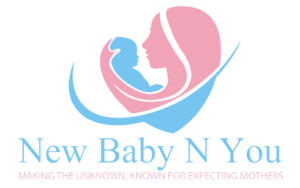Newborn babies get nutrition from their mother bodies. Therefore, they get all the essential antibodies and vital nutrients from breastfeeding only. This is why breastfeeding is essential for the growth of newborn babies. According to the World Health Organization, mothers should exclusively breastfeed their infant for at least six months.
They also recommend that a mother initiate breastfeeding within one hour after the baby’s birth. The first yellow milk of the mother is known as colostrum. It has several antibodies and contains vital nutrients that help nourish infants and help build antibodies.
Breastfeeding for a newborn is a complete nutritional meal. But the question is, “how long should a woman breastfeed here, baby?”
According to WHO and the American Academy of Pediatrics, a woman should breastfeed her baby for at least six months. However, there is no such limit to breastfeeding time. Some women often continue breastfeeding even after six months or as far as they are lactating.
But once a baby reaches the age of seven months, women need to practice combined breastfeeding with other food elements.
We have written this blog to help women understand breastfeeding facts and how long they can nourish their babies with breast milk.
Here, we’ll provide you with the right guidance and details about breastfeeding facts and figures. Let’s continue reading and read about breastfeeding in detail.
How Long Should You Breastfeed?
How long should you breastfeed? The answer is, “A woman can breastfeed her baby as long as breast milk is beneficial for her baby.” Breast milk is pre-pack with antibodies that help newborns build the first line of defense and a strong immune system.
Additionally, breast milk also has all the vital nutrients that mothers consume. So, breastfeeding can be a full-fledged meal for babies.
A woman can also continue breastfeeding her baby even after the past newborn stage. Breastfeeding your baby after six months or years can promote the healthy growth of babies. In addition, breastfeeding can help in reducing the risk of diseases such as allergies, asthma, diabetes, and many more.
Breastfeeding for the First Month
A baby’s skin and body is three times more delicate than an adult’s. They are unable to fight deadly diseases immediately after birth because they have weak bodies. According to the United Nations Children’s Fund, breastfeeding is considered the first immunization for babies. It helps to build passive immunity to fight against deadly infections. This is why doctors also recommend that women breastfeed properly to their newborns.
In addition to this, the woman also gets benefits from breastfeeding. It helps to release hormones like prolactin and oxytocin. The hormone works together to produce a good feeling and relax the mother. Moreover, it also helps women in normalizing the uterus condition.
Breastfeeding for 3-4 Months
As soon as babies turn three or four months old, women can continue breastfeeding their babies. This helps to support the digestive system and improve digestion. In addition, breastfeeding at this stage helps to protect babies against food allergens and other diseases.
The best part is breastfeeding for a few months can also help women burn extra calories per day. It helps to reduce postpartum weight and live a healthier life. Breastfeeding also helps to heal women’s bodies internally. If a woman continues breastfeeding for nine months or longer, it helps her fight postpartum depression.
Breastfeeding for 6 Months
When your baby gets six months older, do not hesitate to continue breastfeeding. However, you can also start adding other food supplements recommended by doctors. In addition, breast milk can help fulfill protein and Vitamin A requirements at this stage.
It continues to protect your babies from diseases. But you need to add more key nutrients to support their growing bodies. Continuing breastfeeding can also be beneficial for a woman at this stage because it helps women to reduce the risk of ovarian cancer.
Breastfeeding for 9 Months
W.H.O also recommends that feeding your baby with breast milk for 9-12 months can help to build a strong immune system. However, you need to combine other food supplements and home-based food at this stage. It should be a balanced diet.
You can include boiled pulses, rice water, boiled veggies, fruit juices, and recommended supplements to feed your baby. It helps to nourish your child correctly and build immunity. In addition, breastfeeding with complementary food can be the best diet for the growth of babies.
When To Stop Breastfeeding?
There is no particular time to stop breastfeeding. However, it is often recommended to breastfeed your baby continually when they reach the age of two years or more. Some women stop breastfeeding after one year, whereas others continue breastfeeding for longer than one year.
It depends on the mother for how long she wants to breastfeed her baby. But if you feel soreness in your nipples and have intense pain, you can stop breastfeeding your child. However, make sure to shift your baby to a healthy diet before stopping breastfeeding.
You can also follow a combination breastfeeding technique to quit breastfeeding. This helps to shift your baby to a regular diet, and slowly you can stop breastfeeding completely.
Final Thoughts
In a nutshell, breastfeeding is itself a balanced diet for babies. You can continue breastfeeding your newborn for a year. But make sure that your newborn is getting the right nutrition when you stop breastfeeding. In addition to this, you can follow combination breastfeeding and then stop breastfeeding.
At the same time, you can continue breastfeeding for at least nine months. This not only helps the newborn to build immunity but also helps the mother to get back to her normal life faster. But make sure for the first six months you should breastfeed your newborn properly.


